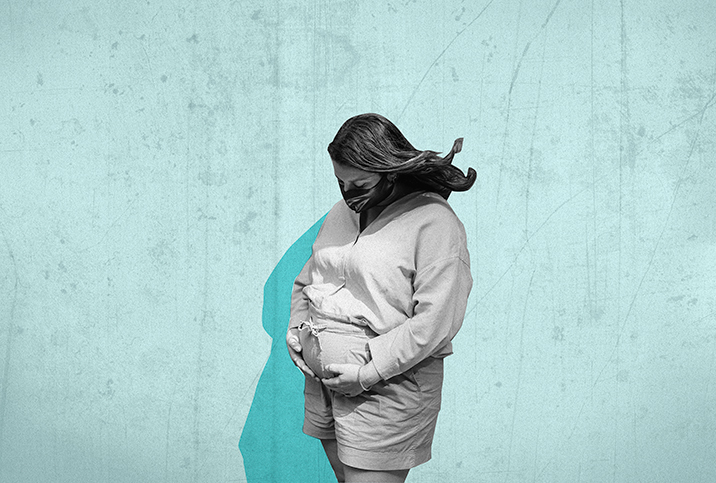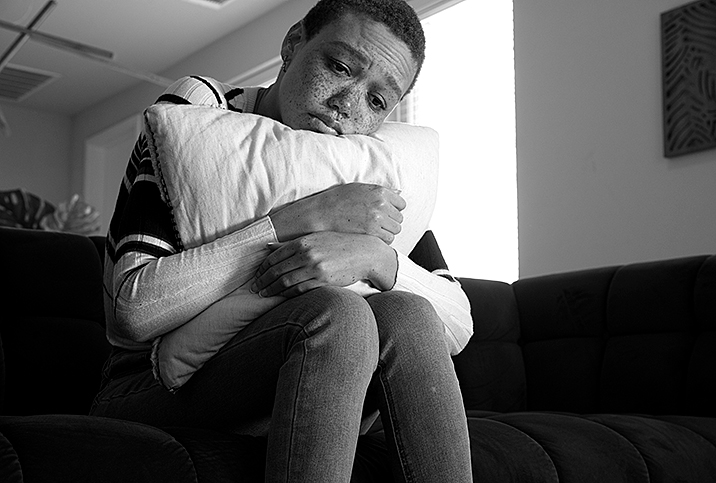Pregnancy While Being a Chronically Ill Person

Exhaustion is ubiquitous during pregnancy. Among 605 women in a 2021 study, the overwhelming majority, 94.2 percent, suffered fatigue during their pregnancy. But for women with chronic illnesses, managing pregnancy becomes even more wearisome. In 2018, more than half of adults in the United States had at least one chronic condition, and over a quarter of adults had multiple chronic illnesses, according to research reported by the Centers for Disease Control and Prevention (CDC).
The CDC broadly defines a chronic illness as a condition that lasts more than a year, requires ongoing medical attention, and limits activities, daily living, or both. Pregnant people with a chronic illness may also be at an increased risk of adverse pregnancy outcomes. Pregnancy while being chronically ill can exacerbate certain chronic diseases, but establishing specialized care before getting pregnant and along the way can help.
What chronic illnesses can impact pregnancy?
Specific chronic illnesses can impact every corner of pregnancy, from conception to gestation, maternal health and method of delivery.
Nola Herlihy, M.D., a reproductive endocrinologist at Reproductive Medicine Associates in New Jersey, listed hyper- and hypothyroidism, asthma, inflammatory bowel disease (IBD), systemic lupus and HIV, among others, as chronic illnesses that may impact pregnancy. Herlihy explained that some chronic diseases can make conception more challenging, especially if they are associated with irregular ovulation.
People are becoming pregnant later in life, which poses the potential of additional risks for chronic illness and pregnancy.
"As women are getting older and delaying childbearing, this has become a much more important topic because many women in their 30s or even early 40s may have some chronic health conditions that 20-year-olds didn't have. The two most common are diabetes and high blood pressure or hypertension," explained Holly Puritz, M.D., a board advisor and board-certified OB-GYN at Lucina Analytics in Norfolk, Virginia.
While it's clear that a plethora of chronic illnesses can impact pregnancy, asthma is the most common comorbidity, which refers to the simultaneous existence of two or more diseases. Uncontrolled, asthma's risks may influence maternal, fraternal and neonatal complications.
People are becoming pregnant later in life, which poses the potential of additional risks for chronic illness and pregnancy.
How some chronic illnesses, such as diabetes, impact pregnancy may depend on the time of diagnosis, Puritz said.
"If someone is diagnosed and is known to be diabetic before they're pregnant, it can have a significant impact if their blood sugars are not well controlled," Puritz explained.
If a person develops diabetes during pregnancy, it can cause issues with the baby gaining weight. Having a large baby may sound like a healthy baby, but it's not necessarily a marker of health, Puritz explained.
"You can have issues such as shoulder dystocia, where the vaginal delivery is impacted because the baby's shoulders can't fit through," Puritz said.
Hypertension can lead to multiple issues with the size of the baby, such as the baby being too small because blood flow is affected, Puritz added.
Pregnancy while being a chronically ill person needs professional attention. A healthcare provider can help prepare you for management before, during and after pregnancy.
How can women handle the stress of illness and pregnancy?
Pregnancy is already stressful enough, compounded by the notion that many pregnant people want to do everything right in their pregnancies, Puritz explained. On top of the stress of pregnancy, research has found that stress associated with chronic illness can alter perinatal outcomes. Reducing stress becomes just as critical as taking care of your physical wellness.
"For women with and without chronic illnesses, good self-care is extremely important," Herlihy explained.
Jerry Bailey, a certified nutritionist, acupuncturist, and chiropractic and functional medicine physician at Lakeside Holistic Health in Idaho, stressed the importance of chiropractic adjustments and acupuncture, along with proper diet and exercise. Herlihy said support may also come from psychologists or yoga teachers.
Myths and misconceptions about pregnancy and chronic illness
"One of the most common myths is that if you have a chronic illness, you can't get pregnant. And that is absolutely incorrect," Puritz said.
Herlihy added that "while there are some illnesses that are associated with very high maternal morbidity, most women with chronic illness can conceive and have a healthy pregnancy."
Puritz said there is a misconception that taking medication during pregnancy is inherently harmful, regardless of the type of medication.
"And so sometimes women would stop their medication prior to their appointment with their obstetrician, which is incorrect," Puritz said.
Managing pregnancy and chronic illness
Pregnancy while being a chronically ill person doesn't have to be difficult. Puritz explained that one of the most essential steps people can take before becoming pregnant is to form a plan, regardless of whether the chronic condition is well-managed.
"It also involves having all of her physicians being on the same page and speaking together. It definitely takes a village, and it should not be siloed that the one hand does not know what the other is doing," Puritz said.
In addition, Herlihy explained that a perinatologist is a specialist in high-risk pregnancies who can help people with illnesses associated with increased pregnancy complications, such as intrauterine growth or preterm birth.
"A perinatologist will be able to appropriately educate women on their unique circumstances and implement the right level of care based on the chronic illness," Herlihy added.
Certain illnesses may make a pregnancy higher risk or pose complications with medication.
"We also see any number of other issues, such as people with arthritis, lupus, GI issues such as ulcerative colitis or Crohn's disease, or thyroid issues," Puritz said. "All of these require close collaboration between the obstetrician, the patient's physician who is taking care of that condition and a maternal-fetal medicine doctor, who is a specialist in these high-risk issues. This will help ensure that the mom is on the safest medication, the lowest dose of medication, and the one least likely to affect her pregnancy."
Beyond a great team of providers, having support in your personal life can also make a difference.
"Regular appointments with your physician team throughout pregnancy require your time, attention and energy," Herlihy said. "Communicate with the people in your personal and professional lives so they can support you during your pregnancy."

















